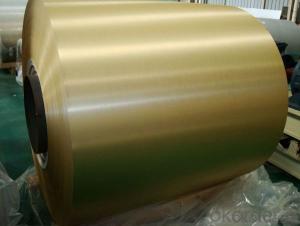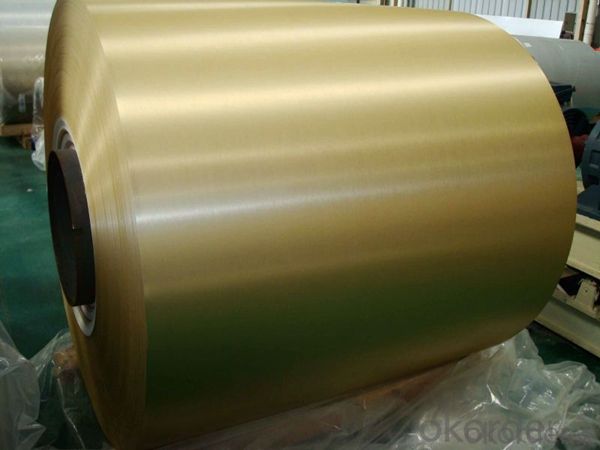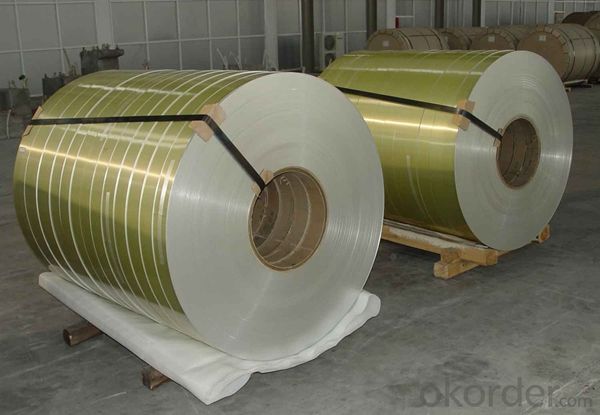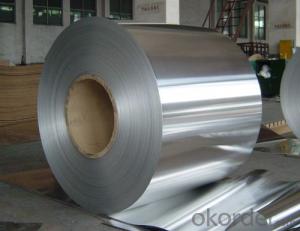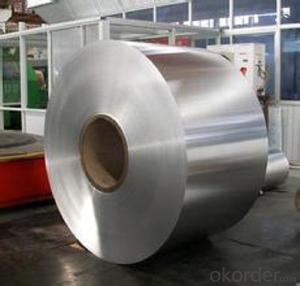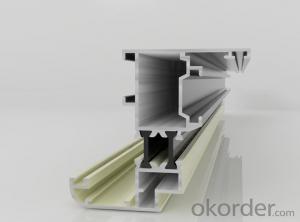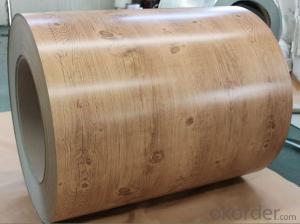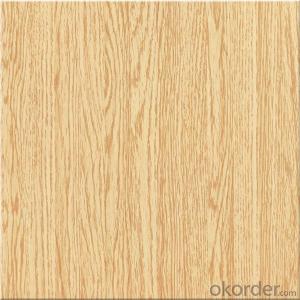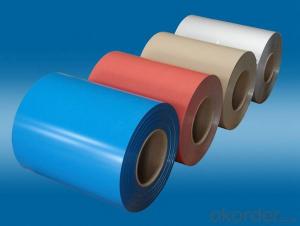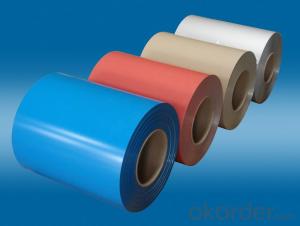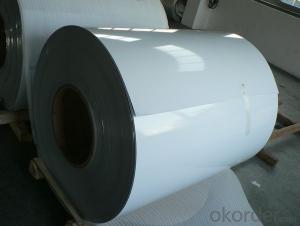102 Aluminum Coil for Interior Wall System - Brushed Coating Washington
- Loading Port:
- Shanghai
- Payment Terms:
- TT OR LC
- Min Order Qty:
- 5 m.t.
- Supply Capability:
- 10000 m.t./month
OKorder Service Pledge
OKorder Financial Service
You Might Also Like
Specification
1. Specification of Brushed Coating Aluminum Coil for Interior Wall System
characteristics | Application |
1) Super peeling strength | 1) Building exterior curtain walls |
2) Excellent surface flatness and smoothness | 2) Decoration and renovation additions for old buildings |
3) Superior weather, corrosion, pollutant resistance | 3) Decoration of interior walls, ceilings, bathrooms, kitchens and balconies |
4) Even coating, various colors | 4) Shop door decorations |
5) Fireproof, excellent heat and sound insulation | 5) Advertisement board display platforms and signboards |
6) Superior impact resistance | 6) Wallboards and ceilings for tunnels |
7) Lightweight and easy to process | 7) Industrial materials, materials for vehicles and boats |
2. Application of Brushed Coating Aluminum Coil for Interior Wall System
(1).Interior: wall cladding, ceilings, bathrooms, kitchens and balconies, shutters, doors...
(2).Exterior: wall cladding, facades, roofing, canopies, tunnels,column covers , renovations...
(3).Advertisement: display platforms, signboards, fascia, shop fronts...
3. Feature of Brushed Coating Aluminum Coil for Interior Wall System
*Such coil is specially designed to replace aluminum ingot, due to the high export tax of aluminum ingot, the coil has better price than ingot.
*This type of coil can fit customer's remelting furnace just like ingot, no need to make any change to the production line that was previously used for ingot. The standard coil size and weight is very suitable for the feed gate of furnace.
*This type of coil causes less material wastage than ingot when remelted.
*Our coil is made directly from ore, no need to go though the ingot making process, quality is much better than other suppliers who use ingot scrap to make coil.
Be free from Oil Stain, Dent, Inclusion, Scratches, Stain, Oxide Dicoloration, Breaks, Corrosion, Roll Marks, Dirt Streaks and other defect which will interfere with use
4. Certificate:
SGS and ROHS(if client request, paid by client), MTC(plant provided), Certificate of Origin(FORM A, FORM E, CO), Bureau Veritas and SGS (if client request, paid by client), CIQS certificate
5. Image of Brushed Coating Aluminum Coil for Interior Wall System
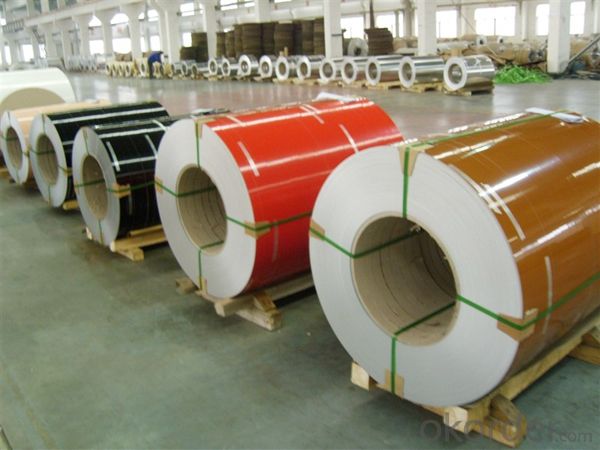
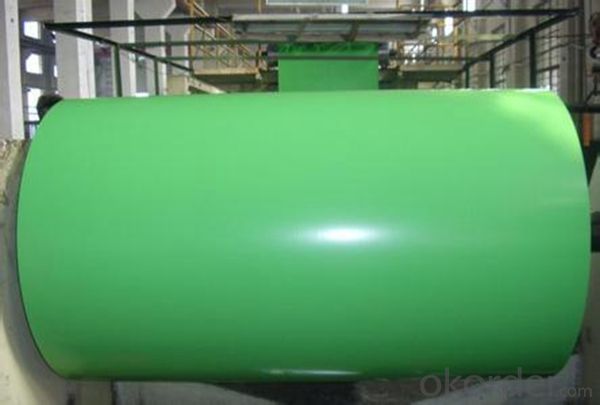
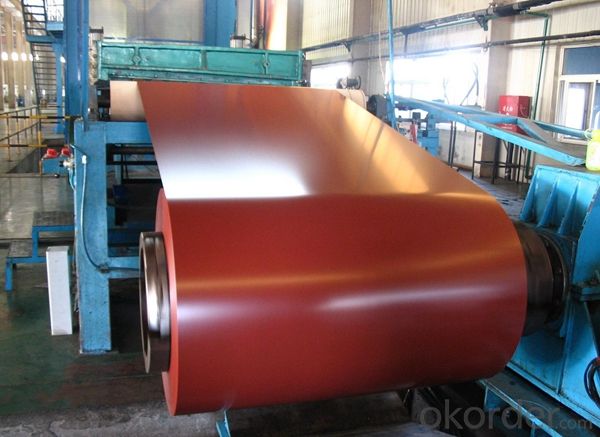
6. Package and shipping of Brushed Coating Aluminum Coil for Interior Wall System
eye to wall
eye to the wall
with wood pallet (wooded case also available)
7. FAQ
1) What is the delivery time?
Dpends on actual order, around 20 to 35 days
2)What is the QC system:
We have QC staff of 20 persons and advanced equipment, each production is with MTC traced from Aluminum ingot lot.
3) What market do you mainly sell to?
Australia, America, Asia, Middle East, Western Europe, Africa etc
- Q: Which is better composite or aluminum, and what are some main differences between the two?
- This Site Might Help You. RE: Composite vs Aluminum baseball bats? Which is better composite or aluminum, and what are some main differences between the two?
- Q: I know aluminum has gone up in price. I know very little about gutter material. Durability, leaf guards, etc. I am on a limited income, and need the most and best for my few bucks. Thanks Lee
- If you want seamless gutters (which are the best way to go) then you want aluminum. Your gutter installer will make them on site and hang them with a quickness. It may not be as expensive as you may think.
- Q: How to calculate the length of aluminum sheet with the thickness known?
- Thickness*width*length=weight/density, length=weight/(density*thickness*width). Ps: Keep unit the same.
- Q: This question asks about potential safety hazards when using electric heaters that have aluminum coils.
- <p>While electric heaters with aluminum coils are generally safe when used properly, there are some safety concerns to consider. Aluminum can heat up quickly and may become very hot, posing a risk of burns if touched. Additionally, aluminum coils can corrode over time, potentially leading to electrical shorts or fires. It's important to ensure that the heater is not covered or obstructed, as this can cause overheating. Always follow the manufacturer's instructions for use and safety precautions. Regularly inspect the heater for any signs of damage or wear, and never use a heater with a damaged cord or plug.</p>
- Q: What are the different coil winding options for aluminum coils?
- There are several coil winding options for aluminum coils, including random winding, layer winding, and helical winding. Random winding involves winding the aluminum wire in a haphazard manner, while layer winding involves winding the wire in a neat, concentric manner. Helical winding, on the other hand, involves winding the wire in a spiral or helix pattern. Each winding option has its own advantages and is chosen based on specific requirements and applications.
- Q: Are there any limitations to the maximum coil length of aluminum coils?
- Yes, there are limitations to the maximum coil length of aluminum coils. The maximum coil length depends on various factors such as the thickness and width of the aluminum coil, the strength and tensile properties of the aluminum alloy, the equipment used for coil processing, and the intended application of the coil. One limitation is the strength and ductility of the aluminum alloy being used. Aluminum alloys with higher strength and lower ductility may have limitations on the maximum coil length due to the risk of coil breakage or deformation during processing or handling. Another limitation is the equipment used for coil processing. The maximum coil length is often determined by the size and capabilities of the equipment used for slitting, cutting, or forming the coils. If the equipment has a limited capacity or is not designed for longer coils, it may not be able to handle or process longer lengths effectively. The intended application of the coil can also impose limitations on the maximum coil length. For example, if the coil is intended for transportation purposes, such as in the automotive industry, there may be restrictions on the maximum coil length based on the size and weight limitations of the vehicles. Additionally, logistical factors such as transportation and storage can also impose limitations on the maximum coil length. Longer coils may be more difficult to handle, transport, and store, which can increase the risk of damage or pose challenges in terms of logistics and space requirements. Therefore, while there is no specific universal limit to the maximum coil length of aluminum coils, it is essential to consider various factors such as alloy properties, equipment capabilities, application requirements, and logistical considerations to determine the practical limitations of coil length for a specific situation.
- Q: Can aluminum coils be customized to specific thicknesses and widths?
- Indeed, it is possible to tailor aluminum coils to meet specific thicknesses and widths. These coils find extensive utilization across numerous sectors like construction, automotive, and aerospace, considering their distinct dimensional necessities. The customization procedure entails adapting the aluminum coils' thickness and width to align with the customer's particular requirements. Achieving this objective involves employing diverse techniques, such as rolling, slitting, or cutting the coils in order to achieve the desired dimensions. Furthermore, the customization process may also encompass supplementary alterations such as surface treatments or coatings, contingent upon the application's specific demands.
- Q: Can aluminum coils be used in automotive manufacturing?
- Yes, aluminum coils can be used in automotive manufacturing. Aluminum is a lightweight and durable material, making it a suitable choice for various automotive components such as body panels, engine parts, and heat exchangers. Its corrosion resistance and recyclability also make it an attractive option for the automotive industry.
- Q: How do aluminum coils compare to zinc coils in terms of durability?
- The durability of aluminum coils and zinc coils is influenced by their different properties. Aluminum coils are highly durable due to their excellent corrosion resistance. They naturally develop an oxide layer that acts as a protective barrier against rust and degradation. This makes them ideal for use in coastal areas or locations with high humidity levels. In contrast, zinc coils, specifically galvanized steel coils, are coated with a layer of zinc to enhance their corrosion resistance. The zinc coating acts as a sacrificial layer, corroding first and protecting the underlying steel from rust. As a result, zinc coils are also highly durable and can withstand harsh conditions where the steel substrate is exposed to moisture or chemicals. Although both aluminum and zinc coils offer good durability, aluminum coils have an advantage in terms of corrosion resistance. Their natural oxide layer provides continuous protection, while zinc coils rely on the sacrificial zinc coating, which can gradually wear off over time. However, the overall durability of both types of coils depends on factors such as maintenance, usage, and the specific environment in which they are installed.
- Q: I am planning on calling an electrician before we move in. I was just wondering about some ballpark estimates to rewire a home with aluminum wiring (appx. 1900 sq feet).
- You may want to check with your insurance company, because my mom's house was wired up with alumimum wiring and now the house is about 30 years old and the insurance company is threating to drop the insurance if we don't replace the wiring with copper because alumimum will not take heavy electrical loads and when they do they heat up quickly and start fires. If you haven't bought the house i would put a clause into the buyer's agreement or ask for some money off because alumimum wires are infeior and garbage. For my mom's house it ended up costing us about 4000 bucks for the electrictian to pull out all the wires, we did the demo ourselves which was to pull all the drywall off and clean-up leaving all interior walls bare. and the rest of the 4000 was for the drywallers to come in and put new drywall up. But since our house also had old pipes too so we decieded to replace those too as well. What you may be looking at is a money pit, after all wiring, plumbing and other repairs were done, it ended up costing us about 12 grand to do all the work and half of it was because we did the work ourselves
Send your message to us
102 Aluminum Coil for Interior Wall System - Brushed Coating Washington
- Loading Port:
- Shanghai
- Payment Terms:
- TT OR LC
- Min Order Qty:
- 5 m.t.
- Supply Capability:
- 10000 m.t./month
OKorder Service Pledge
OKorder Financial Service
Similar products
Hot products
Hot Searches
Related keywords
